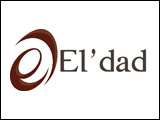Proposed amendments to the Municipal Act and the City of Winnipeg Charter would enhance transparency for ratepayers in rural Manitoba and reduce red tape for all Manitoba municipalities.
“The amendments would provide important information to municipal councils and strengthen communications between ratepayers and their municipality whenever there is significant tax shifting after a province-wide reassessment,” said Municipal Relations Minister Jeff Wharton. “It will also modernize, balance and simplify how municipalities provide refunds of excess taxes as a result of an appeal.”
Manitoba regularly reassesses all property to ensure assessments keep pace with changing market conditions and are easily understood by ratepayers, which may result in municipal taxes shifting between properties. This bill would ensure municipal councils have the information needed to make informed decisions about whether and how to use local tax tools to mitigate impacts on affected property owners when that happens. Ratepayers will also have automatic access to information from the Manitoba government and their municipality to be full participants in the local decision-making process. Municipalities will retain their autonomy in making decisions about municipal taxation.
The minister noted these rules would not apply to the City of Winnipeg, which has a large and diverse assessment base to mitigate significant tax shifting, and a robust public information and consultation process.
In addition, currently all Manitoba municipalities, including the City of Winnipeg, must pay interest on excess taxes paid by property owners if an assessment appeal is successful. Conversely, property owners are not required to pay interest when an assessment increases. This requirement and the associated interest rate have not been reviewed in decades. In response to requests from the City of Winnipeg and other municipalities, this legislation would remove these outdated provisions.
Recent streamlining of the assessment appeal process has reduced timelines, meaning decreased interest payments no longer outweigh the administrative burden needed to process them. Modernizing and streamlining this process would allow municipalities to simply refund excess taxes directly to ratepayers and balance would be restored to the assessment appeal process, aligning Manitoba’s approach with Saskatchewan and Alberta.
The province consulted with key stakeholders, including Keystone Agricultural Producers and the City of Winnipeg throughout 2018 about the proposed legislative changes.


